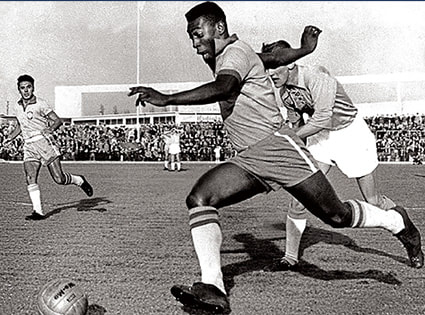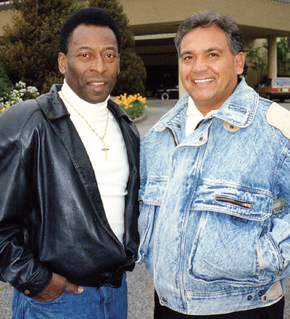The world says goodbye to Pelé, King of Soccer
Legendary soccer superstar, Edson Arantes do Nascimento, best known by his nickname Pelé, died in São Paulo at 82 years old on December 29th from complications caused by advanced colon Cancer and a respiratory infection.There are very few athletes as famous as Pelé. Essentially, he became synonymous with soccer, to the point that fans referred to him as the “King” of the sport and was instrumental in its popularization around the world. His passing led to tributes from fellow players to even world leaders. The renowned Brazilian soccer player, Neymar Jr., posted on Instagram: “Pelé changed everything.” He mentioned that Pelé’s distinctive playing style turned soccer into art and later added “Soccer and Brazil have raised their status thanks to the King! He is gone, but his magic will remain.” Former U.S President Barack Obama tweeted: “Pelé was one of the greatest to ever play the beautiful game. And as one of the most recognizable athletes in the world, he understood the power of sports to bring people together.”
After growing up admiring his father, the soccer player Dondinho, and showing his skills in local teams in his hometown, Bauru, Pelé’s career began when he started to play in the Santos Football Club. There, he quickly rose to popularity because of his remarkable performance and made his World Cup debut in 1958. However, he was deemed too young to be in the starting lineup. Yet, he slowly made his way through the ranks, scored two goals against Sweden in the final, and rose to international fame. From there, he went on to win the World Cup two more times and became the first person to win the cup on three different occasions. In addition, he won 38 titles and scored 1,279 goals, and was named, in a joint award with Diego Maradona, FIFA’s Player of the Century in 2000. However, Pelé’s legacy is not only his dexterity in the field but rather the impact that this had on the world. After his performances in the World Cup, he was able to shine a spotlight on Brazil. His team, Santo’s F.C., was invited to global tours to showcase not only his skills but that of his teammates. This led Brazil to be associated globally with its almost acrobatic playing style, often known as the “beautiful game,” and to be considered a global soccer powerhouse. The country was still reeling from its infamous defeat in the 1950 World Cup, where it lost in the final stage, and was still trying to figure out its role in the emerging international system. Pelé, and his bright yellow jersey, would also later be associated with the country’s economic boom in the 1970s, and his time in the New York Cosmos helped popularized soccer in the United States. Besides his successful athletic career, he also participated in films, and recorded music, was named a UNESCO Goodwill Ambassador, and was even named Brazil’s Minister of Sports. |

